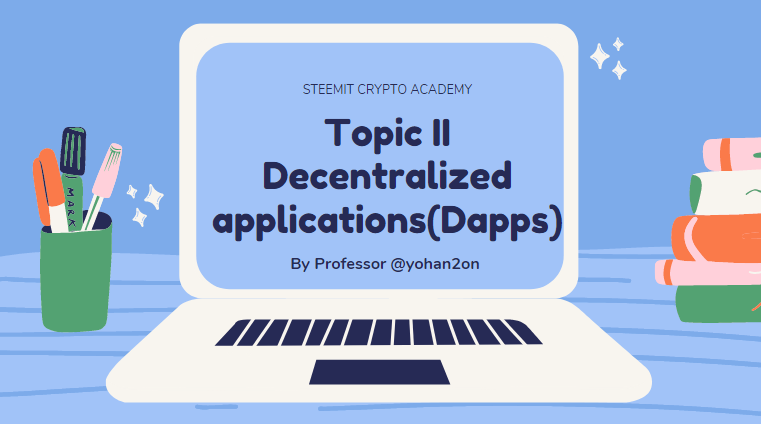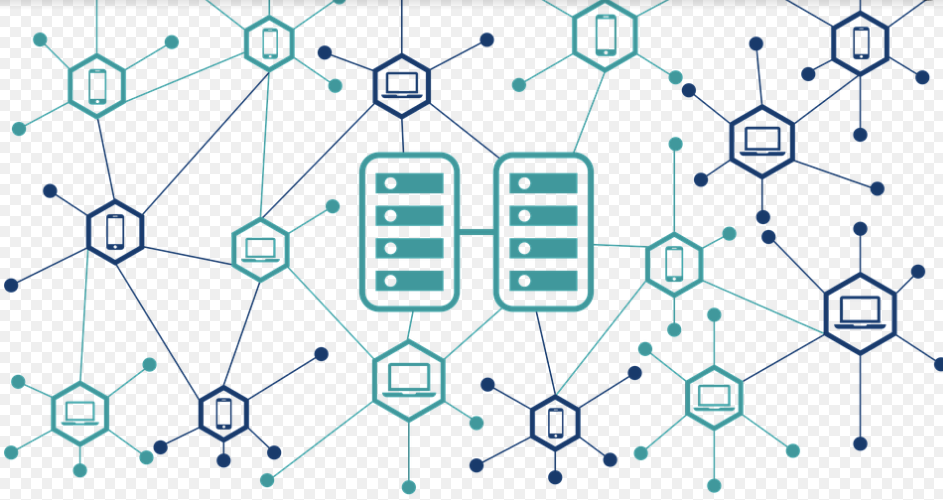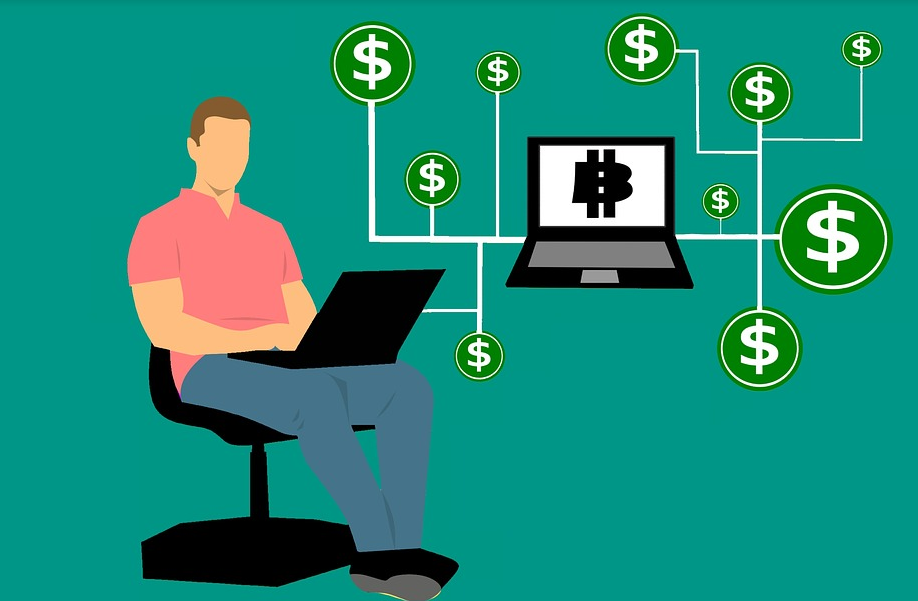
For this week, we are going to look at Decentralised applications(Dapps). Thanks for all your participation in the last week's class about the introduction of Blockchain Technology and for all your homework submittions. By the end of this course article, you should be able to know the following;
- What are Dapps?
- What makes an application to be regarded as a Dapp.
- How Dapps operate
- The relevance of Dapps on today’s economy
Qn -Homework task 2: Explain at least one Dapp on the Tron Blockchain.
The word “Decentralized application” is comprised of two technical words and each carries a significant meaning. Before we define the entire terminology, let’s begin by breaking them down in this manner;
Decentralization is an even distribution of wealth and power from one single entity (central point) to other various stakeholders in the network whereas; an application is simply a designed software computer program.
Therefore, Decentralized applications are defined as open-source software applications/programs, with no central authority in their ecosystem and are powered by blockchain technology. Decentralized applications are powered by blockchain technology. These uphold the core values of Blockchain technology including being open-source, with records cryptographically stored on a public ledger.
Currently, many mainstream services such as Facebook, Google, Amazon, operate on a centralized model call these “centralized applications” where they have control over every data of every individual user account on their network. Whatever is done on their platform or network is directly controlled by the Central governing server.
Due to such a set up that is highly subjected to manipulation and exploitation of private individuals’ data by these centralized mainstream applications, such circles had to be broken by none other than the anonymous Satoshi Nakamoto who published the Bitcoin paper and mined the first Bitcoin in 2009.
In addition to being an electronic cash payment ecosystem, Bitcoin is one of the best examples of Decentralized applications. This brings us to a question; what makes applications to be regarded as decentralized applications?
Open-source
- Dapps are open source, with a public distributed ledger, and not owned by any single entity(company, organization/government)
Internal currency
- They generate their own tokens which are also used in the running and development of the application. The tokens generated are distributed to its users during the initial stages of the application for example through crowd-sale, airdrops, bounty programs, etc.
Decentralized Consensus
- Any changes or improvements in the Dapp are done through a well-defined decentralized consensus mechanism of its users. Bitcoin is a peer to peer network where different nodes communicate with each other with no central authority. Since these are not owned by a single entity, all decision making in regards to the development of changes in the application involves the different nodes in the network.
There is no central failure
- In case one node fails, the entire dapp ecosystem can’t shut down because there is no central data server and the data is distributed across the various nodes in the network.

Operation of Decentralized applications
Dapps operate under consensus algorithms such as the proof of work consensus algorithm, proof of stake, delegated proof of stake. For example in the proof of work consensus algorithm, the miners that validate transactions are rewarded with bitcoins for their work.
In the bitcoin network, there is always a block reward produced after every 10 minutes and these specifically go to the miners as an appreciation for their hard work in validating the various transactions in the network using their mining hardware that requires plenty of computation power.
Dapps built on the Tron blockchain operate on delegated proof of stake whereby the elected super representatives with regular accounts stake a certain amount of the dapp’s tokens and these help out invalidating the various transactions on the network. They are in turn rewarded with tokens for their work. The tokens are then deposited in their separate deposit accounts with a controllable manner of withdrawing those tokens.
They incentivize their users with their own valuable tokens particularly those that keep making valuable contributions towards the growth and development of the application. For example, steemit rewards content creators, developers, and curators/Investors with steem tokens for their efforts in promoting the growth of steem.
The unique core value of incentives in a dapp is that they keep the developers building, the users loyal and the miners maintaining the blockchain hence achieving sustainability and growth of the Dapp in the long run.

The relevance of Dapps on the current economy
- Incentivizes their users and create diversified employment opportunities
Dapps highly incentivize their users with their own valuable tokens hence contributing to the growth and development of their individual users. It is a win-win scenario for the dapp and its users in a way that the users become loyal to the application.
Usability is one of the key aspects that play a huge part in the success of a dapp. These, therefore, help out in addressing a major global problem of unemployment and poverty by availing a unique way of making money. In other words, these have created employment for many people all over the world who are working tirelessly in the growth and development of these apps.
- Trustworthy/transparent
Their data transactions are open source, recorded cryptographically on a publically distributed ledger. These make their users very comfortable while using them because of the built trust in their transparent mechanism of operation.
- Secure
The transactions made in decentralized applications are highly secured by Cryptography. The data transactions cannot be altered hence making them free from risks of attacks and manipulation of hackers.
- Scalable
Decentralized applications are scalable implying that they are able to process and accommodate an ever-growing amount of transactions and usability.
- Data Storage
Storage Dapps store private data securely with no chances of alteration or exploitation of that data since they operate in a blockchain atmosphere that excludes the corruptible 3rd parties/intermediaries.
- Quick transaction execution
Financial Dapps transaction per second is higher than that of the traditional financial applications such as Paypal. Let’s take for instance the Dapps built on the Tron blockchain are very fast because the Tron ecosystem has a high transaction per second of 2000TPS. Therefore when sending money to someone, it's just a few seconds away to reach the receiving party.
"Decentralized systems will surpass the utility of centralized systems, over time, to provide the vast majority of services in the world. “Everything that can be decentralized will be decentralized.” as Quoted by David A. Johnston
There are various Decentralized applications built on top of various blockchains. Explain at least one Decentralized application built on the Tron Blockchain showcasing the unique features of the dapp and its relevance to the current economy. According to the stateofthedapps.com, there are 67 dapps on the Tron Blockchain.
Guidelines
- Your article should be published in the crypto academy community.
- The article should be a minimum of 300 words.
- Use an exclusive tag #dapp and then your country name forexample #uganda in your article followed by any relevant tag to the content of your article such as #crypto, #blockchain...
- Tag me at the end of your post so that i can easily find your article
- Use images from copyright free sources and make sure to showcase the source.
- Refrain from plagiarism. Be as original as possible in your articles.
- Share your article on twitter or any other social media sites.
- The homework task given will run up to 21/02/2021.
